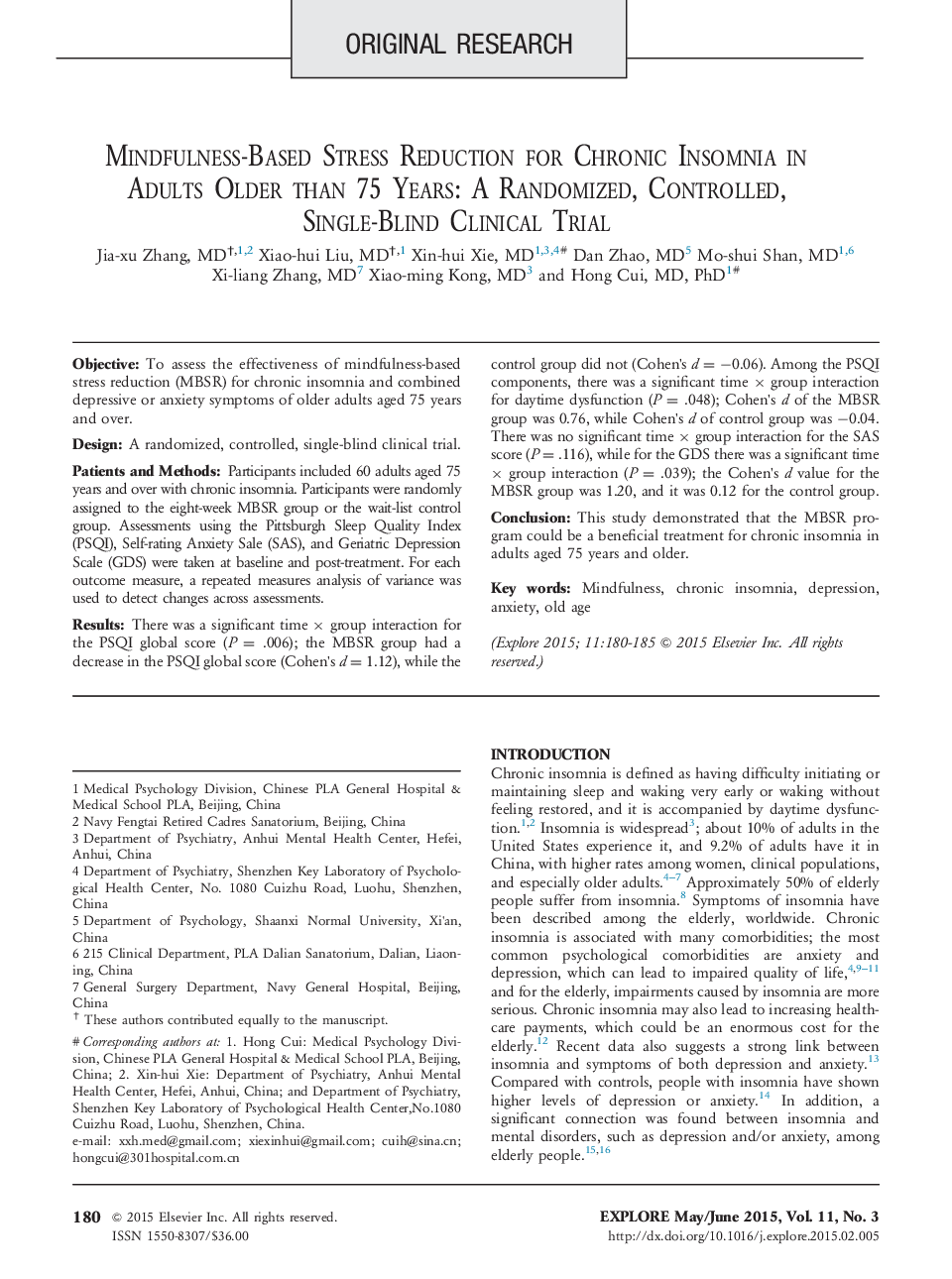| Article ID | Journal | Published Year | Pages | File Type |
|---|---|---|---|---|
| 2685953 | EXPLORE: The Journal of Science and Healing | 2015 | 6 Pages |
ObjectiveTo assess the effectiveness of mindfulness-based stress reduction (MBSR) for chronic insomnia and combined depressive or anxiety symptoms of older adults aged 75 years and over.DesignA randomized, controlled, single-blind clinical trial.Patients and MethodsParticipants included 60 adults aged 75 years and over with chronic insomnia. Participants were randomly assigned to the eight-week MBSR group or the wait-list control group. Assessments using the Pittsburgh Sleep Quality Index (PSQI), Self-rating Anxiety Sale (SAS), and Geriatric Depression Scale (GDS) were taken at baseline and post-treatment. For each outcome measure, a repeated measures analysis of variance was used to detect changes across assessments.ResultsThere was a significant time × group interaction for the PSQI global score (P = .006); the MBSR group had a decrease in the PSQI global score (Cohen׳s d = 1.12), while the control group did not (Cohen׳s d = −0.06). Among the PSQI components, there was a significant time × group interaction for daytime dysfunction (P = .048); Cohen׳s d of the MBSR group was 0.76, while Cohen׳s d of control group was −0.04. There was no significant time × group interaction for the SAS score (P = .116), while for the GDS there was a significant time × group interaction (P = .039); the Cohen׳s d value for the MBSR group was 1.20, and it was 0.12 for the control group.ConclusionThis study demonstrated that the MBSR program could be a beneficial treatment for chronic insomnia in adults aged 75 years and older.
